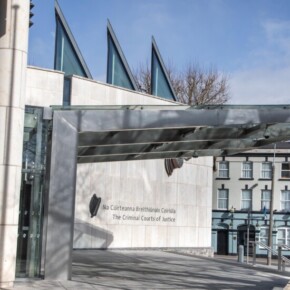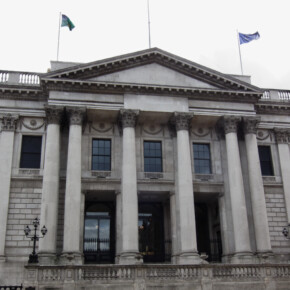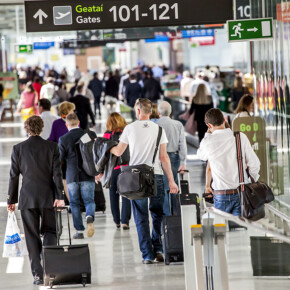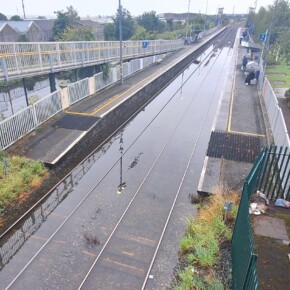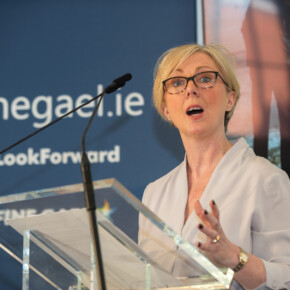“Airlines should foot Metrolink bill”, says Stewart
Mike Finnerty 06 Nov 2024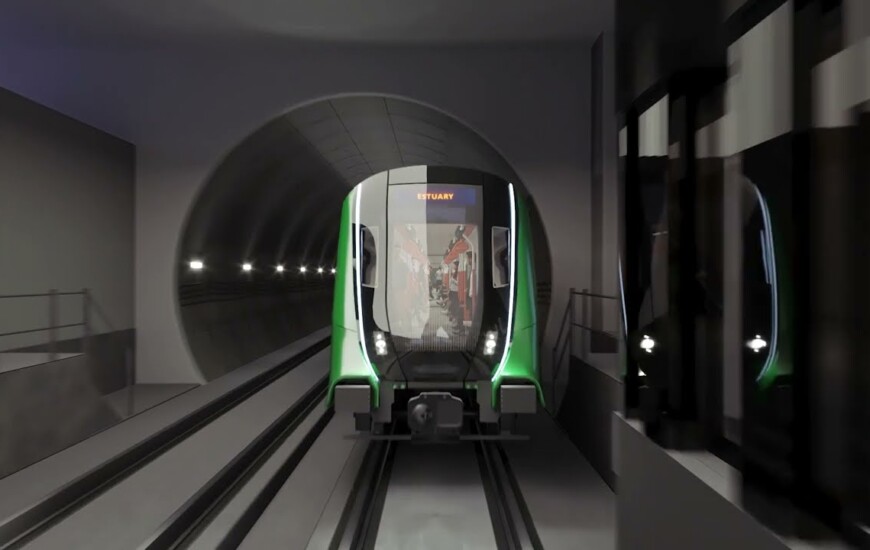
Prominent environmentalist Duncan Stewart has called for airlines to pay for the Metrolink instead of the taxpayer.
Speaking on Newstalk, Stewart, who was granted the freedom of the city last year, said that the €9.5 billion price tag should be shouldered by the airlines.
The majority of the Metrolink project will be tunnel-based, which Stewart noted is incredibly carbon-intensive.
The climate debate has come into sharper focus this week following devastating floods in the Spanish city of Valencia which killed over 150 people.
The environmental impacts associated with the Metrolink project were flagged during the public hearings about the Metrolink project which took place earlier this year.
Stewart himself said the project was “seriously flawed” during his submissions to the process in March, stating at the time “this project should be withdrawn at this stage and redesigned.”
Stewart said, “the sheer scale of the MetroLink tunnel will generate massive, embodied carbon emissions.”
He said the construction process would involve the use of carbon-intensive such as steel and concrete and there would be high energy consumption to bore the tunnel.
Citing an international study that compared the environmental impact of different rail routes, it was noted that underground rail tunnels generate 27 times as much carbon emissions compared to rail lines that are above ground.
Stewart reiterated his stance in an interview with Newstalk earlier this week, saying “a tunnel is very unpredictable to build – and a very expensive, very carbon intensive structure to construct.”
“There are major problems with it, but it’s the exorbitant cost that the taxpayer will have to pay for this, it should be the airlines that pay for this, and not the taxpayer.”
“The amount of money that this is going to be would be equivalent to €20,000 from every family in Dublin to build this over this decade.”
He stated that the money that is planned to be spent on the Metrolink would be better spent improving existing public transport infrastructure.
“The cost of building, and servicing – and even operating a tunnel that’s over 18 kilometres long is not a solution for a low-density, sprawling city like Dublin.”
He said that building the Metrolink would not fundamentally change the public transport situation in Dublin, and said that instead of trying to build an ambitious project like the Metrolink, the government would be better off focusing on the infrastructure that is already in place.
“We are the worst city in the world for public transport according to the TomTom index; of the 387 cities in the world with a population over a million, Dublin is in 2nd.”
MetroLink Project Director Aidan Foley said that in 2021 Dublin was ranked as the 35th most congested city in the world. Foley told the hearing that a single Dublin commuter will, on average, spend over 213 hours a year stuck in traffic, or just shy of 9 days.
Issues with public transport and the surrounding infrastructure have been the hot-button issue for Northsiders in recent weeks.
Issues such as the infamous DART timetable change and subsequent reversal, the long-running saga of the decrypt Clongriffin DART station and the amount of time Northside commuters have to spend in traffic are among the issues general election candidates will have to hear about on the doorstep in the coming weeks.
In January, research carried out by Labour TD Duncan Smith found that the average Fingal commuter is travelling 12 kilometres for work.
“This government is failing to prioritise investment in public transport and connectivity between the cities and counties to get people out of the car and onto the bus,” he said earlier this year.
“We saw so many people put an end to their commute during the pandemic because of the overnight shift to flexible work,” he noted.
Transport Infrastructure Ireland told the hearings that traffic congestion will cost Ireland €2 billion per year over the next decade if the Metrolink is not built. The proposed route will start at the Estuary station in Swords before taking in Seatown, Swords Central and Fosterstown before serving Dublin Airport itself.
Following on from Dublin Airport, the line will travel down to Northwood, Ballymun, Griffith Avenue, Glasnevin, the Mater and onto O’Connell Street before heading Southside.
It is estimated that the Metrolink will be able to carry 21,000 passengers per hour, helping significantly reduce congestion in Dublin.



